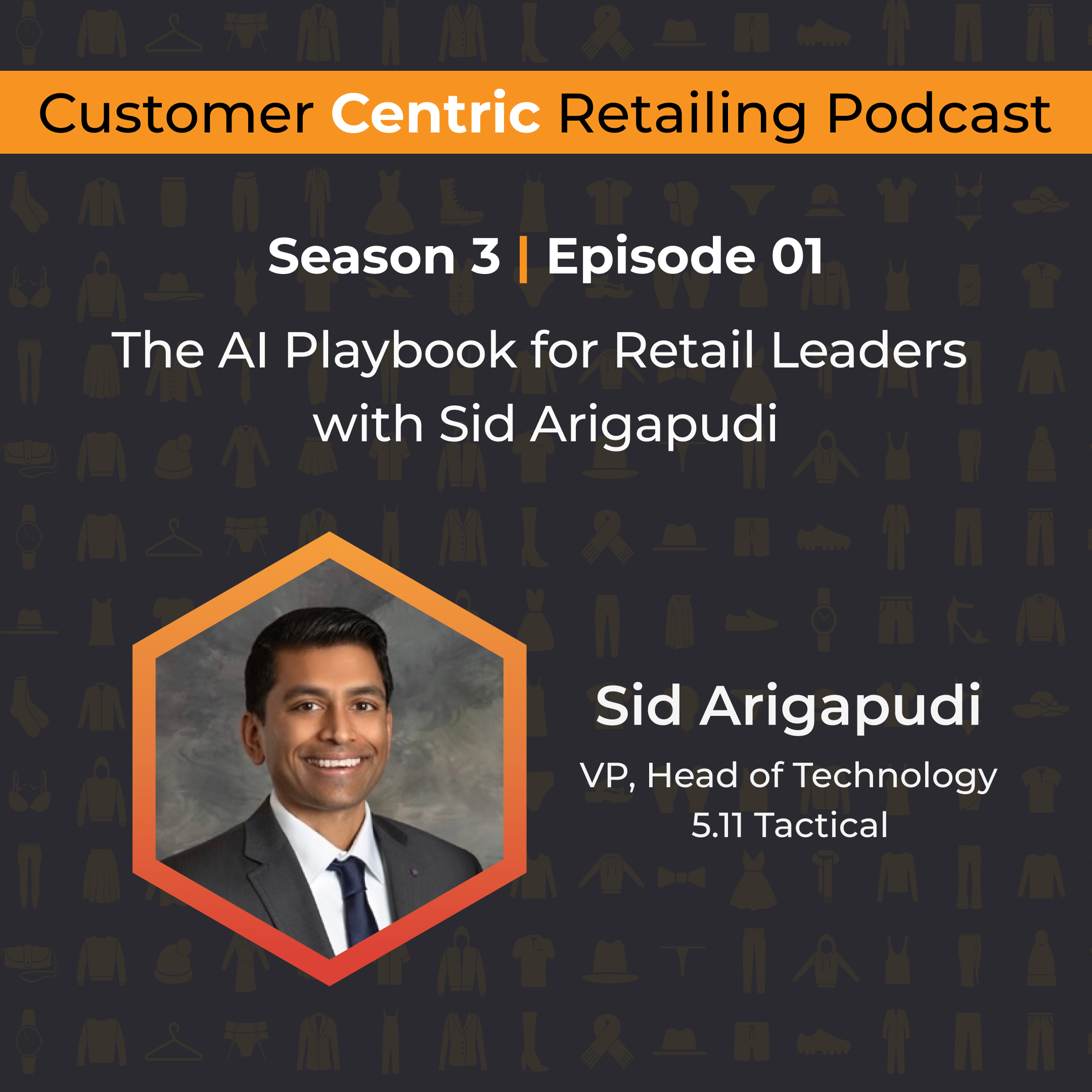[ 5:47 - 6:50 ] Why do retailers need to be transparent about the use of AI tools?
Retailers should prioritize transparency by clearly informing users that they are interacting with a chatbot rather than a human. While chatbots are great for simple tasks like answering questions or tracking orders, more complex or sensitive interactions should be handled by humans. Clear communication and identifying the appropriate use cases are critical for maintaining consumer trust and providing effective support.
[ 7:23 - 8:02 ] How is AI improving decision-making at ALDO Group?
According to Armen, at Aldo, AI is seen as a tool or superpower that enhances, rather than replaces, human decision-making. AI's strength lies in its ability to process vast amounts of data without breaks, continuously learning and refining insights. The company leverages this power to support its staff in making more informed, data-driven decisions.
[ 8:35 - 10:30 ] How is ALDO Group leveraging Gen AI to enhance customer experience?
GenAI is revolutionizing customer experience and eCommerce at ALDO Group, particularly through conversational commerce. A key innovation is the integration of search and chat functions into a single conversation box. This allows customers to express their intent such as looking for shoes for an event and the AI responds by generating relevant images and recommending products based on the specific context. In addition, image recognition and machine learning are being leveraged to enhance product recommendations and optimize critical business processes, including markdown strategies, order fulfillment, and assortment allocation. Aldo, for example, has made significant investments in these technologies, driving multi-year initiatives that progress through phases like experimentation and proof of concept (POC), ultimately delivering substantial value in areas that directly impact the company's bottom line.
[ 12:18 - 14:09 ] Conversation Content What role does demand forecasting play in inventory management?
Effective demand forecasting at the SKU level is crucial for determining the right product assortment. By analyzing historical sales, trends, and seasonality, businesses can predict which products to produce and in what quantities. Once production quantities are set, AI can be used to allocate products across stores based on anticipated demand, ensuring optimal distribution. This forms the foundation of pre-season planning. During the in-season phase, tools like markdown optimization help manage inventory effectively. For example, at Aldo, AI predicts weekly sales per product, considering factors like sell-through rates and lifecycle, to determine the optimal markdown percentage. This approach maximizes gross margin by the end of the season. Ultimately, accurate demand forecasting drives both pre-season assortment and in-season markdown and order fulfillment strategies, ensuring alignment between supply and demand throughout the retail cycle.
[ 17:30 - 19:32 ] Why is a human touch crucial when using AI generated data?
Armen highlights that the process begins with experimenting and generating outputs through data-driven models, which removes human subjectivity by relying on patterns and predictions. Once the model generates results, human input is necessary to review and make modifications based on the model's forecasts, such as adjusting pricing strategies. The human element allows for fine-tuning, where changes can be tested and their impact evaluated before final approval. As the model matures, additional external and internal datasets such as weather, consumer sentiment, or web analytics are incorporated to refine the predictions, continuously enhancing the model's accuracy while maintaining a balance between data and human oversight.
[ 24:30 - 26:00 ] How RFID improves inventory accuracy in retail?
The ALDO Group is leveraging RFID technology to enhance inventory accuracy through quick stock scans, with an average scan time of just 20 minutes. This system compares real-time inventory data with the stock on hand, allowing for immediate adjustments. Improved inventory accuracy is essential for effective order fulfillment, especially for stores that ship directly to customers. By reducing the decline rate the percentage of orders that cannot be fulfilled due to inaccurate stock counts ALDO can increase the chances of successful first-touch deliveries. Although the RFID system is currently in the pilot phase, initial results show significant improvements in accuracy, offering valuable data to refine AI models for better decision-making.
[ 29:08 - 30:25 ] How is Aldo Group simplifying staff training with AI?
ALDO aims to improve store associate training and daily operations by implementing an AI-powered assistant through OpenAI's Assistant API. Associates can interact with a natural language processing bot for immediate, context-driven answers after incorporating comprehensive documentation. This simplifies training and allows for real-time support, reducing reliance on traditional methods. The AI assistant also streamlines routine queries, increasing operational efficiency in the store.
[ 39:49 - 41:22 ] What is Aldo Group's approach towards innovation and customer satisfaction?
Aldo has always been at the forefront of innovation, from adopting headless commerce and microservices in the mid-2010s to embracing AI today. This forward-thinking approach is driven by a clear focus on enhancing the customer experience and improving operational efficiency. Aldo's commitment to providing a frictionless shopping experience is reflected in initiatives like faster order fulfillment, ensuring customers receive their products quickly and conveniently. With a bold, strategic vision led by CEO David Bensadoun, Aldo continuously seeks technologies that not only drive business growth but also align with their ultimate goal: satisfying their customers and selling more shoes.





